Top 8 Roadworthy Tips to Master Trucking Bookkeeping in 2024


Trucking bookkeeping can be a daunting task, but it doesn’t have to be! In this guide, we’ll delve into crucial strategies that will help you master your finances. From understanding your business entity and tax classification to using accounting software and regularly reviewing your finances.
By the end, you’ll have top-notch tips to ensure your trucking business runs smoothly. So, let’s embark on this journey and unlock the secrets of efficient bookkeeping with these roadworthy tips to master trucking bookkeeping!
Your business entity type is crucial for effective bookkeeping and tax management in the trucking industry. Whether you’re a sole proprietor, part of a partnership, or running a corporation, each entity type comes with its own set of tax obligations and benefits.

First, it’s important to know that your business structure determines how you’re taxed. For instance, sole proprietors report business income on their personal tax returns, while corporations are taxed separately from their owners.
In the trucking business, documenting every financial transaction and maintaining thorough logbooks is vital. These records not only help during tax time but also keep your financial management on track.
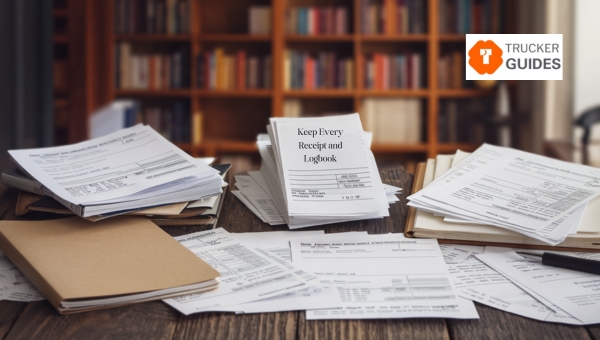
Let’s dive into why saving every receipt and maintaining accurate logbooks are essential aspects of your trucking bookkeeping.
Keeping all receipts is crucial for accurate record-keeping and maximizing deductions. Each receipt provides proof of your expenses, which is important when it comes to filing taxes.
Without these receipts, you might miss out on deductions, leading to higher tax payments. Plus, having a detailed record helps you track your spending and identify areas where you can cut costs.
Moreover, receipts act as a safety net if you’re ever audited. They provide concrete evidence of your business expenses, making the audit process smoother.
Maintaining logbooks is equally important for tracking your operational activities and expenses. These logs provide a detailed account of your trips, including mileage, fuel usage, and other essential details.
Accurate logbooks help you keep track of your driving hours, ensuring compliance with regulations and avoiding potential penalties. logbooks are invaluable when calculating your International Fuel Tax Agreement (IFTA) reports.
They help you determine the amount of fuel purchased and used in different jurisdictions, making it easier to file accurate tax returns. This not only keeps you compliant but also aids in budgeting and financial planning.
Using digital logbooks can simplify this process. Many apps are designed specifically for truckers, allowing you to log your trips and expenses on the go.
Also Read: Hiring Guide for Small Business Owners [Your Ultimate Resource]
Keeping your personal and business finances separate is crucial for smooth financial management. By segregating these accounts, you can easily track your business expenses, ensure accurate record-keeping, and simplify tax preparation.
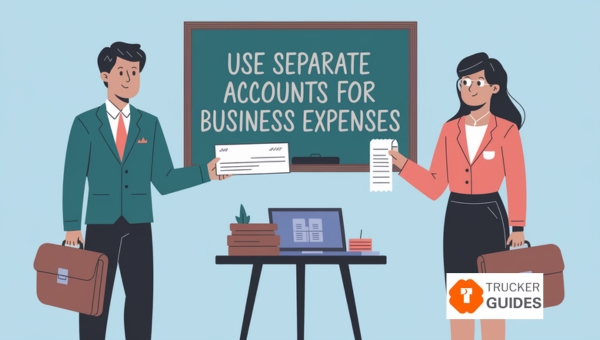
This separation makes it easier to monitor the financial health of your trucking business without mixing personal expenses.
Opening a business checking account is one of the best steps you can take for your trucking business. This account will act as the central hub for all your business transactions. When all income and expenses flow through a dedicated business account.
It becomes significantly easier to manage your finances. You can easily monitor cash flow, pay bills, and manage payroll without the confusion that comes from mixed personal and business expenses.
A business checking account adds a layer of professionalism to your operations. Clients and vendors will see you as more credible when transactions are processed through a business account rather than a personal one.
Using a business credit card offers numerous advantages that can greatly benefit your trucking business. Firstly, it helps in keeping track of all business-related expenses in one place. This organization simplifies the process of reviewing and categorizing expenses, making it easier when tax season arrives.
Another significant benefit is the ability to build business credit. A strong business credit profile can help you secure better financing options in the future, such as loans or lines of credit.
Furthermore, many business credit cards offer rewards programs that provide cash back, travel points, or other perks for your spending.
Regularly updating your IFTA (International Fuel Tax Agreement) data is essential for maintaining compliance and effective budgeting in your trucking business.
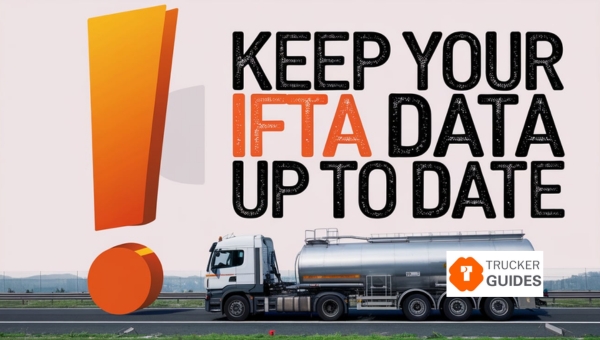
IFTA data includes records of fuel purchases and mileage traveled in different jurisdictions, which are crucial for accurately calculating fuel taxes. Neglecting this task can lead to penalties and fines, which can affect your bottom line.
To start, consistently log fuel purchases and keep receipts organized. This ensures you have a comprehensive record of your fuel expenses, simplifying the process of preparing your IFTA reports.
It’s also beneficial to use digital tools or apps specifically designed for IFTA reporting, as they can automatically track and update your data.
Accurate mileage tracking is another critical component. By documenting the miles driven in each state or province, you can correctly apportion fuel taxes.
Also Read: 7 UX Metrics to Transform Your User Experience
Understanding your cost per mile is crucial for effective financial planning and pricing in the trucking industry. This metric helps you determine how much it costs to operate your truck for each mile driven, covering everything from fuel, maintenance, and insurance to driver wages and administrative expenses.
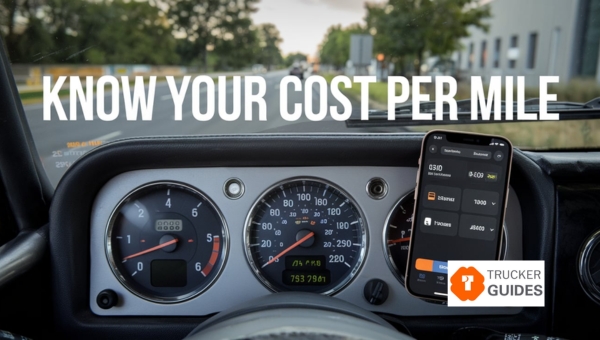
To accurately calculate your cost per mile, start by tracking all expenses. This includes fixed costs like insurance and truck payments, as well as variable costs such as fuel and maintenance.
Divide the total expenses by the number of miles driven in a specific period. For instance, if your total expenses for a month are $10,000 and you drive 5,000 miles, your cost per mile would be $2.
Knowing your cost per mile enables you to set competitive rates for your services. It ensures that your pricing covers all operational costs and generates a profit.
Accounting software is a valuable tool for anyone in the trucking business. It helps manage finances, track expenses, and simplify tax preparation. This software can streamline your financial operations, making it easier to keep accurate records.
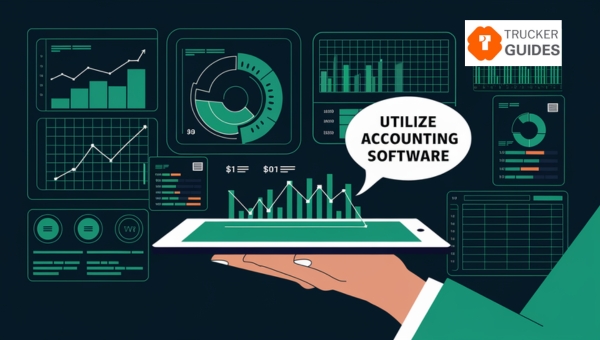
By using accounting software, you ensure that all financial data is organized and accessible. This organization can save you time and reduce errors when it comes to tax season.
Moreover, accounting software allows you to track expenses in real time. This feature is essential for keeping tabs on your spending and identifying areas where you can cut costs. With everything in one place, you can quickly generate reports and gain insights into your financial health.
Regularly reviewing your finances is essential for maintaining accuracy, compliance, and strategic planning.

By keeping a close eye on your financial activities, you can catch errors early, stay compliant with regulations, and make informed decisions that help your business grow..
Daily financial updates are like a quick check-up for your business. They help you stay on top of current expenses and income, ensuring you always know where your money is going.
By tracking your transactions every day, you can identify any discrepancies immediately and address them before they become bigger issues.
This practice not only keeps your records accurate but also gives you a clear picture of your cash flow, which is crucial for day-to-day operations.
Monthly reviews offer a broader perspective on your business’s financial health. By assessing your overall performance every month, you can spot trends, evaluate the success of your strategies, and make necessary adjustments.
These reviews help you see the bigger picture, allowing you to set realistic goals and plan for the future. They also ensure that your financial records are up-to-date and ready for any audits or tax preparations.
Also Read: Detect and Prevent Payroll Fraud in Your Business Today
When it comes to payroll processing for a trucking company, the requirements can be quite distinct compared to other industries. Partnering with the right payroll provider is essential for streamlining operations and reducing unnecessary paperwork.

Drivers are often compensated based on the number of loads delivered or miles driven, rather than receiving a fixed monthly or weekly salary.
The ideal payroll solution should effectively handle unique payroll challenges and comply with industry-specific regulations while simplifying the calculation of compensation. Depending on your company’s size and specific needs.
Mastering trucking bookkeeping can seem challenging, but with the right approach, it becomes much more manageable. By understanding your business entity, keeping meticulous records, and using separate accounts for business expenses, you set a strong foundation.
Regularly updating your IFTA data, knowing your cost per mile, utilizing accounting software, and reviewing your finances consistently are all crucial steps toward financial success. Remember, effective bookkeeping not only keeps you compliant but also propels your business forward